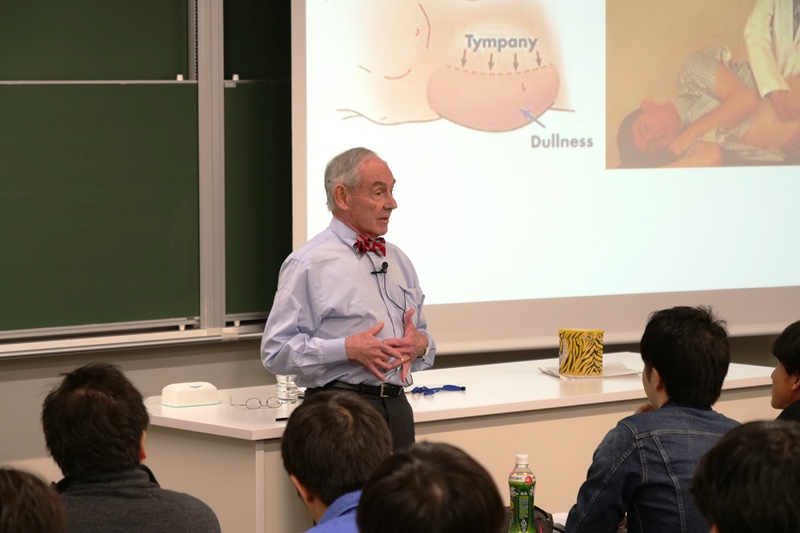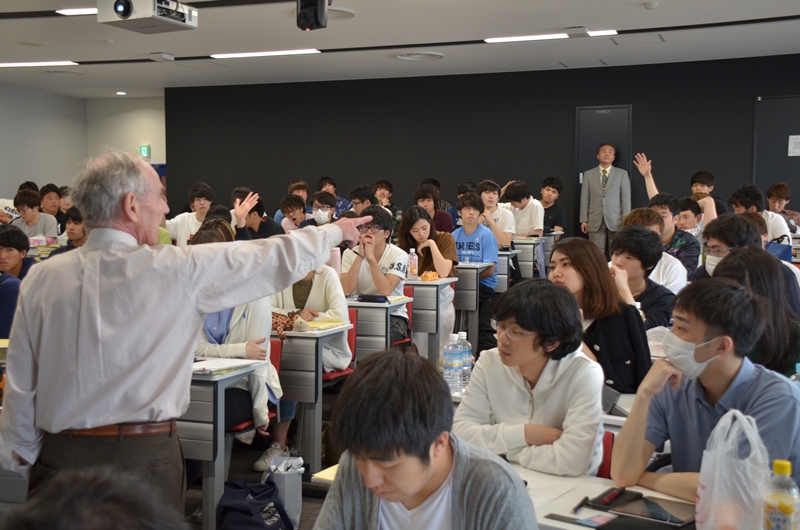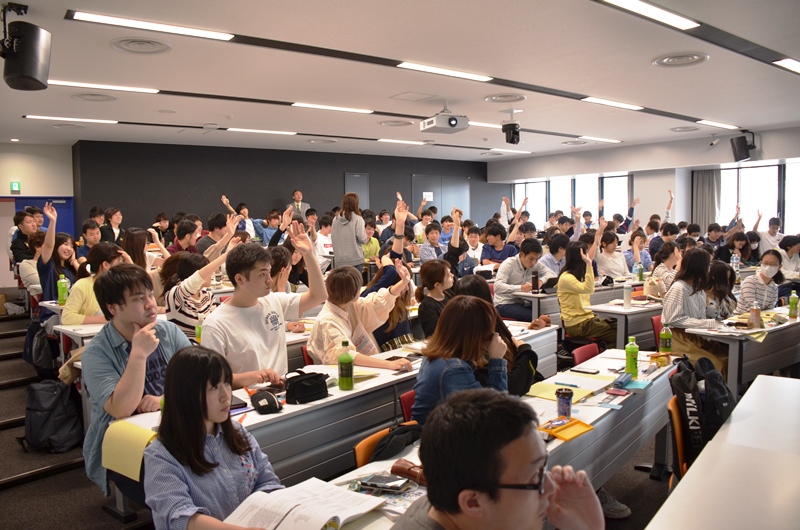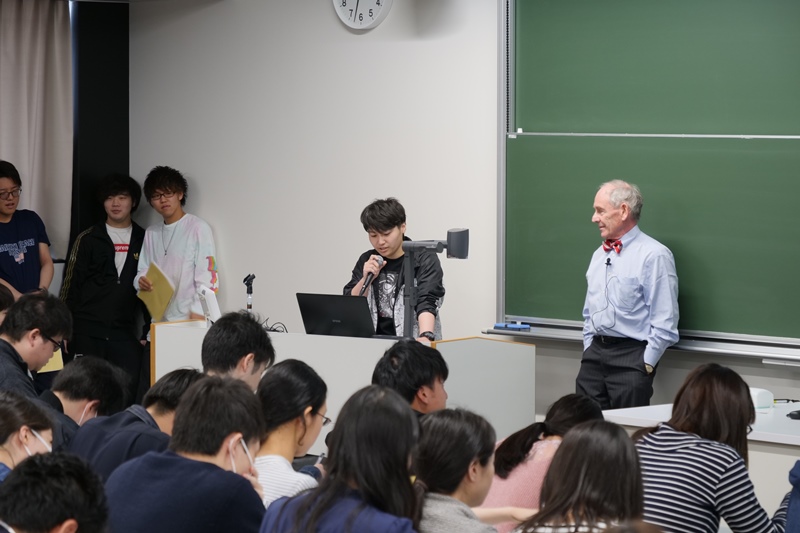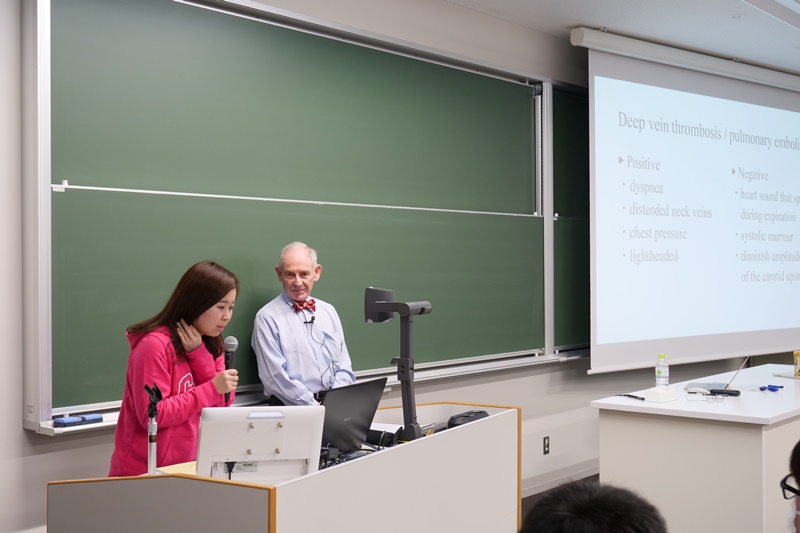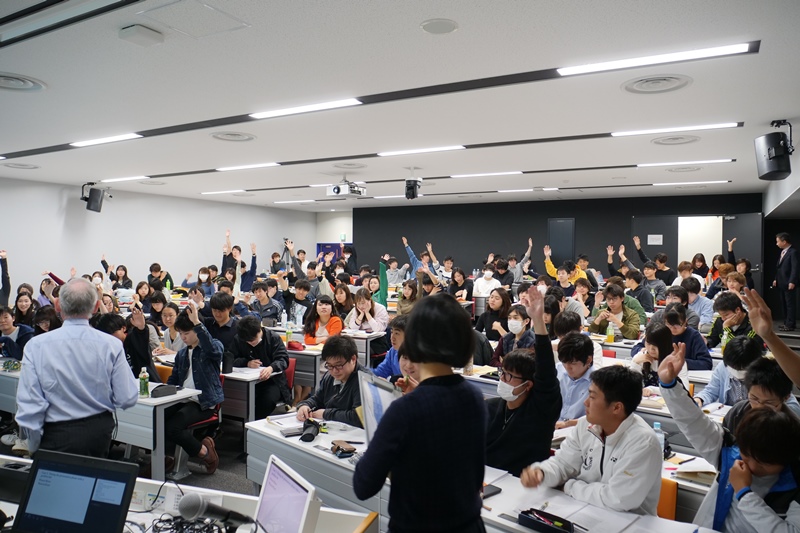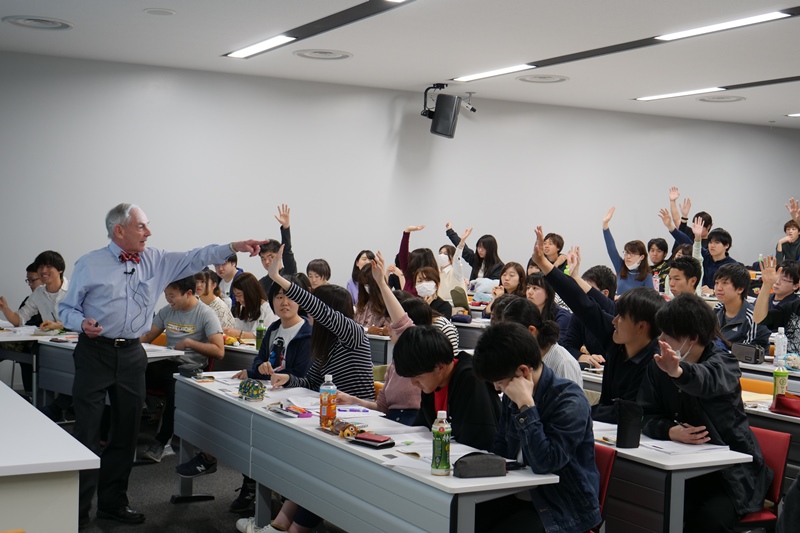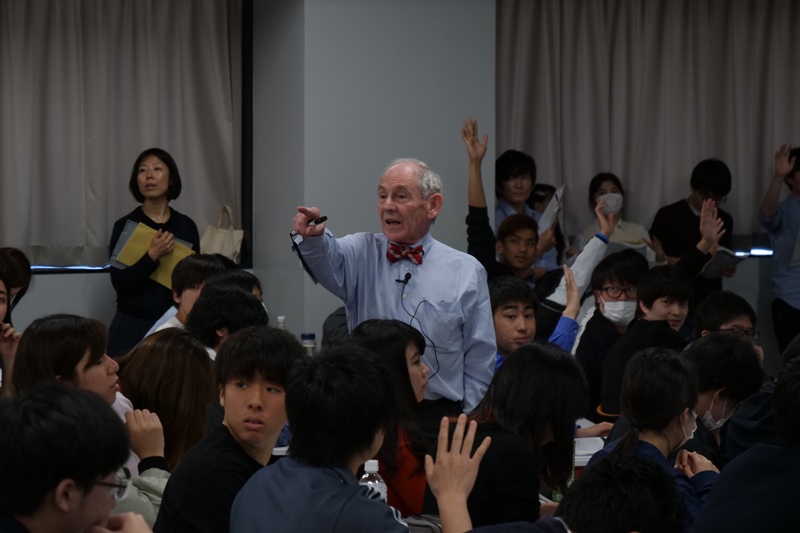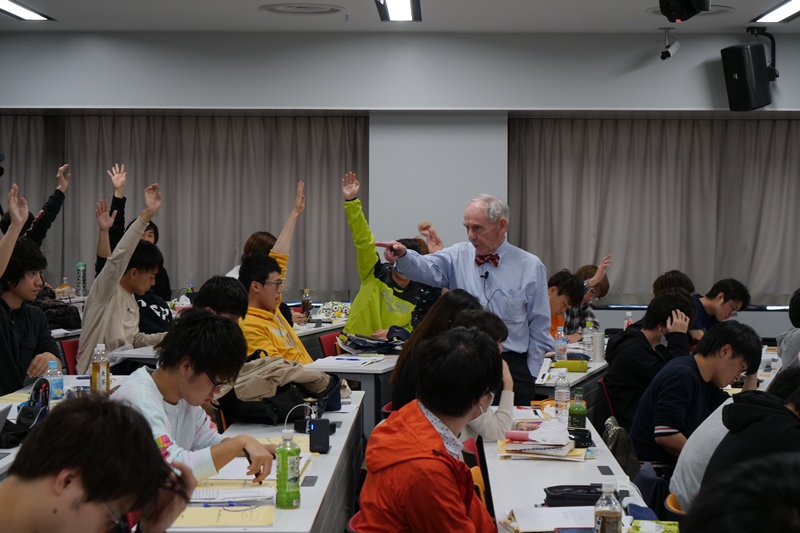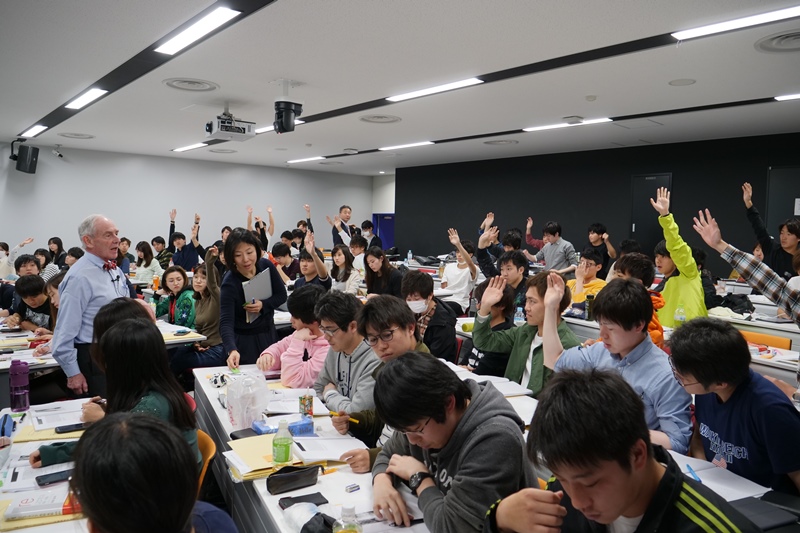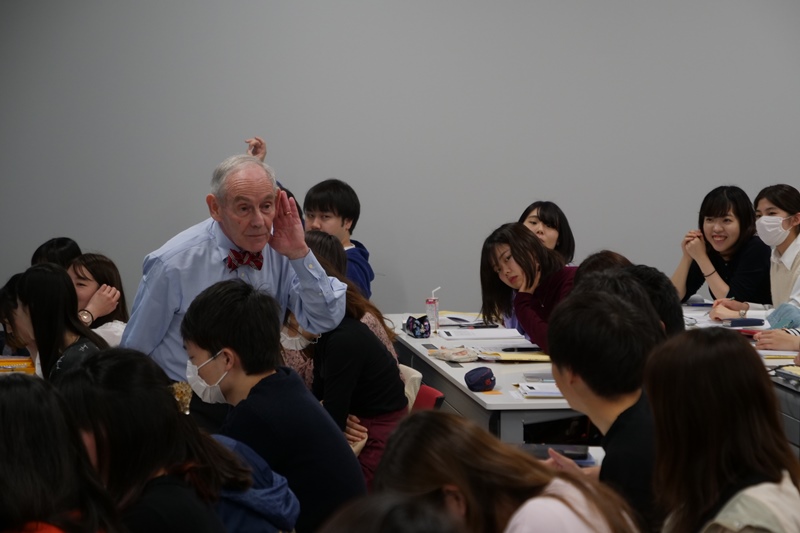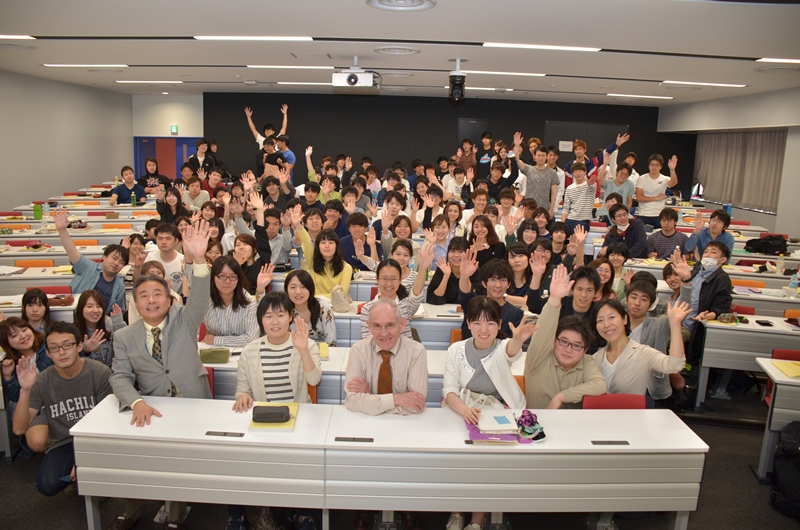Undergraduate and Graduate School
2019 Clinical Reasoning in English (by Professor Noel)
"Learning Clinical Reasoning in English" is a course that aims to equip students with the "clinical reasoning skills" required to work as a doctor in the future, which are the ability to "narrow down illnesses based on the symptoms and signs reported by patients." The course consists of eight classes, and one of its features is that all classes are conducted in English. By handling clinical cases in English and conducting all discussions in English, the course aims to equip students with not only clinical reasoning skills, but also the communication skills necessary to treat patients from other countries.
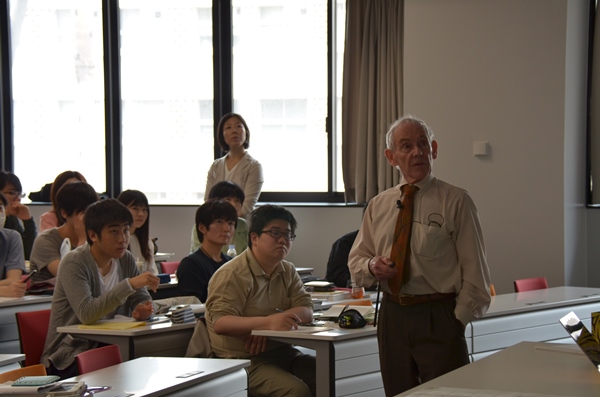
Professor Gordon L. Noel, a visiting professor, gives enthusiastic instruction.
Point 1
Lecturers include physicians who have been involved in medical education in the United States.
The lecturer in charge of the class is an internist and other experienced in various aspects of medical education in the United States.
Point 2
A curriculum that develops the ability to perform differential diagnosis in English
In the first class, students are given the task of summarizing a case, narrowing down the disease causing the symptoms, and presenting the basis for their diagnosis, all in English. Through this assignment, students communicate their thoughts in English through trial and error, and acquire the skills of differential diagnosis.
Student comments
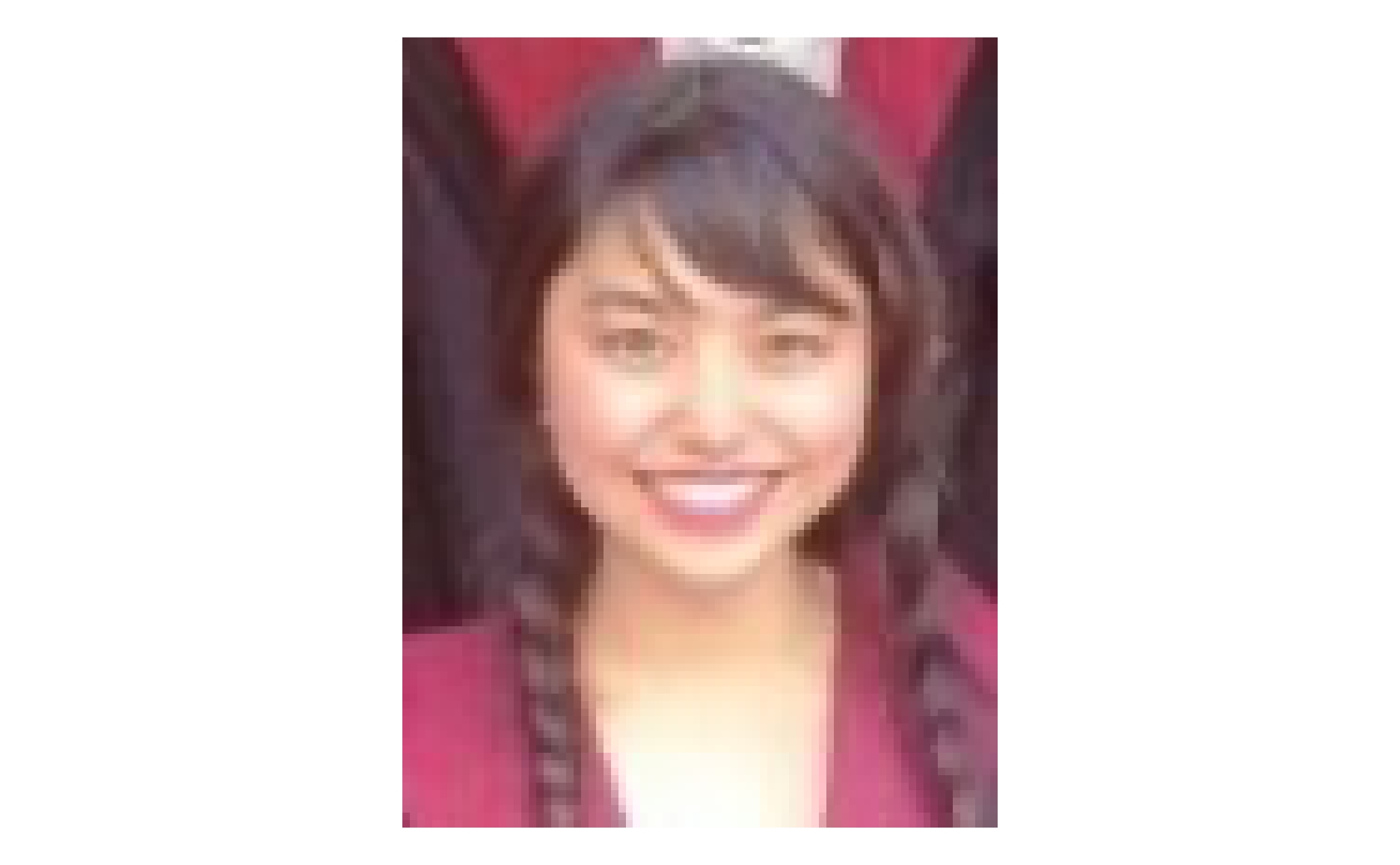
4th grade student Yukiko Shinohara
Because students cannot answer the professor's questions without understanding the pathophysiology, some students would understand the English case before each class, predict the questions in advance, review the pathology, and look up the English vocabulary. Although few students prepare in advance for regular classes, the clinical reasoning class, in which participation in class is directly linked to grades, was a good class that brought out the students' independence.
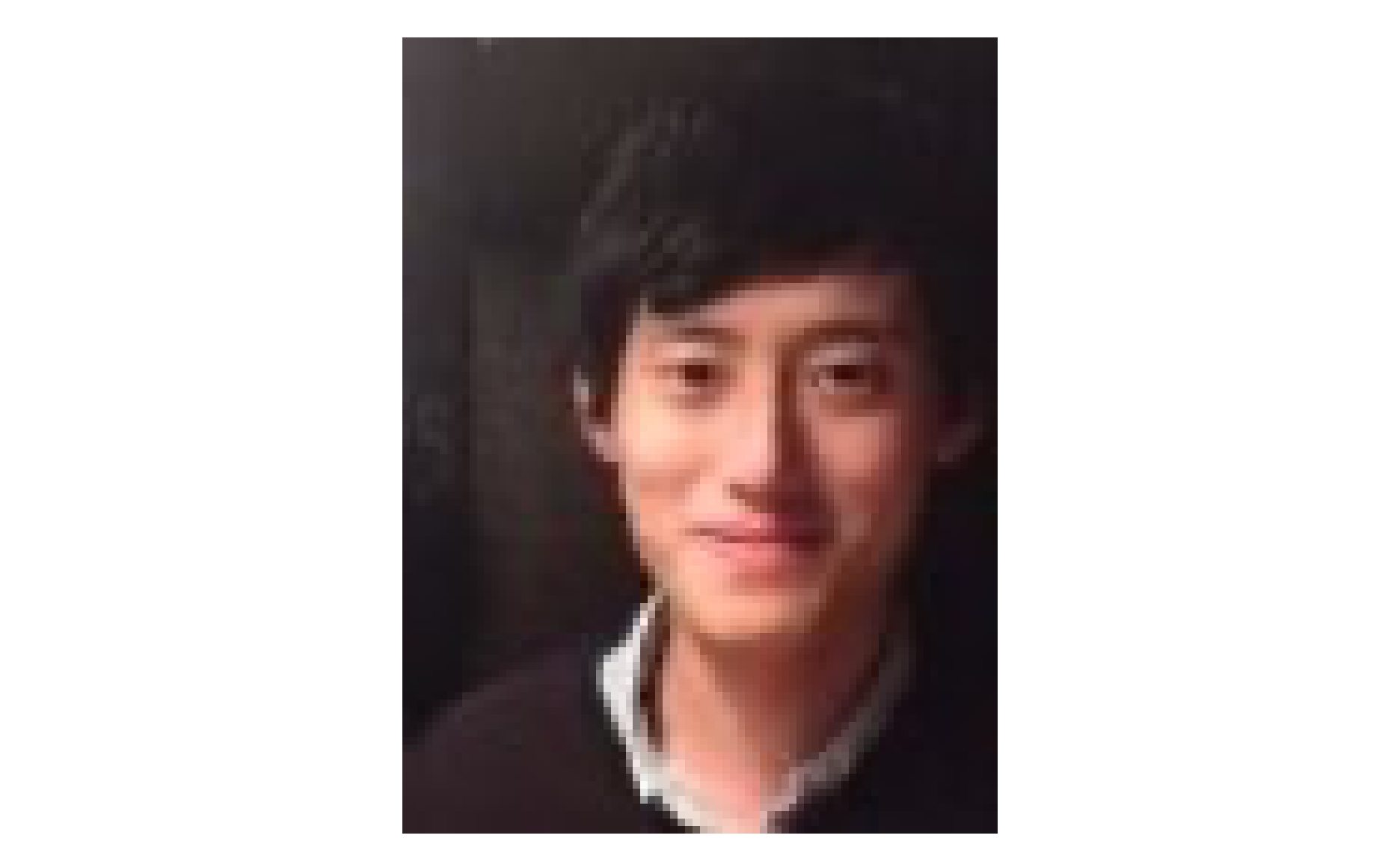
Fourth year student, Haruki Mitsuda
"Learning Clinical Reasoning in English" is a participatory class that is a little different from traditional classroom learning. Every time you speak, you receive a card, which encourages you to listen more carefully to the teacher's English and speak in English. You will gradually be able to understand medical terms and English that you were unable to understand well in the first class, and it is also attractive that you can think about medicine in a different way than usual.
*Grades are those at the time of the interview.
